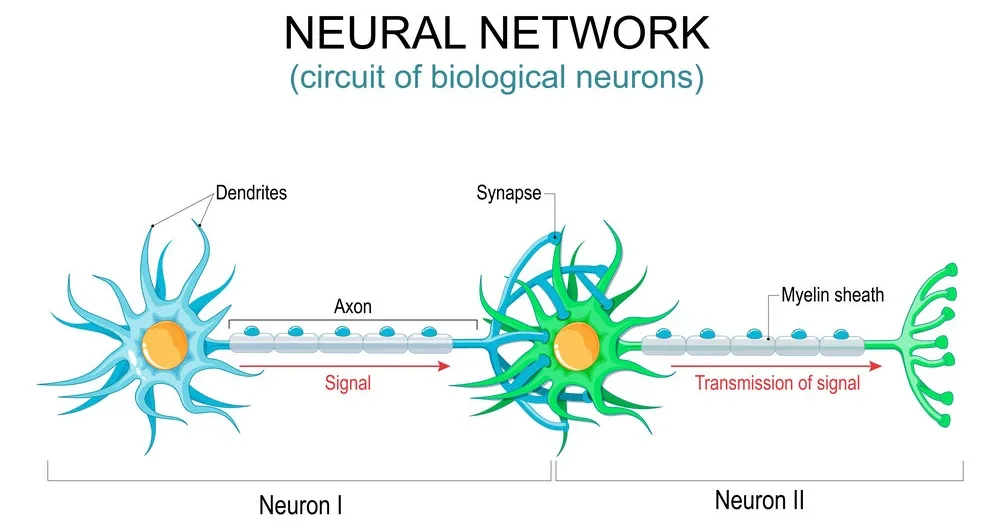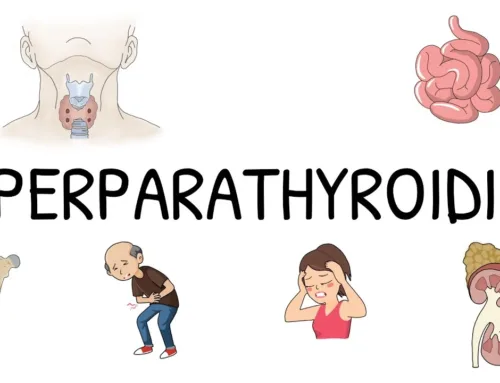Neurotransmitters are chemical messengers that carry signals between neurons. They are released by the axon terminal of one neuron and travel across a synapse to the dendrites of another neuron. Neurotransmitters can excite or inhibit (inhibit means to slow down) activity in the receiving cell.

The information in this article should help you understand the chemical messengers in the neural system. You’ll also learn more about the different types of neurotransmitter chemicals that make up your neural system.
What body functions do neurotransmitters help control?
Nerves and neurotransmitters help control many bodily functions, including:
- Movement
- Sensation (touch, taste, smell, and sight)
- Heart rate and breathing
- Digestion
How do neurotransmitters work?
When a message is sent from one neuron to another, it releases a chemical neurotransmitter into the synaptic gap between them. The neurotransmitter travels across this gap and attaches to receptors on the receiving neuron. This triggers a response in that receiving neuron, which may be either excitatory or inhibitory depending on the type of receptor it binds with. In other words, those signals are passed down through that second neuron and onward until they reach their intended destination—the next neuron in line.
What change do neurotransmitters transmit to the target cell?

When a nerve cell releases a neurotransmitter, it crosses the synapse and binds to receptors on the target cell. This causes changes in your target cells that may lead to further action:
- The target cell can send a message back to the nerve cell, either directly or indirectly, through other cells.
- If enough receptors are available for binding with neurotransmitters, then an action potential (electrical signal) can be sent along this pathway from one neuron to another.
Types of neurotransmitters

There are different types of neurotransmitters, and they come in two main categories: excitatory and inhibitory. Excitatory neurotransmitters cause an action potential to be generated and sent along the nerve cell, whereas inhibitory neurotransmitters prevent such a signal from occurring.
Some chemicals do not influence neural activity; they don’t even fit into either category! But these aren’t considered neurotransmitters because they don’t affect your brain’s function. In the brain, there are several different types of neurotransmitters have been identified. It’s estimated that there are over 100 different chemicals in the brain that can act as neurotransmitters! Some transmitters are excitatory and cause action potentials to be generated in a neuron, while others inhibit neural activity. The most common neurotransmitters are as follows:
Amino acids neurotransmitters
Amino acid neurotransmitters are the most common type of neurotransmitter. They include glutamate, aspartate, GABA (gamma-aminobutyric acid), glycine, and taurine. Amino acids act on ionotropic and metabotropic receptors to cause excitatory or inhibitory neuron responses. They are found in the body’s brain, spinal cord, and nerves.
Monoamines neurotransmitters
Monoamine neurotransmitters are chemicals that transmit signals across the gap between neurons. They include dopamine, norepinephrine, epinephrine (adrenaline), and serotonin. Monoamines are found in the brain and spinal cord. They act on various receptors to produce different effects, including activating or inhibiting neurons, aiding in depression or anxiety disorders, contributing to insomnia, causing feelings of pleasure or pain reduction, and regulating appetite.
Peptide neurotransmitters
Peptides are short chains of amino acids. The examples include oxytocin and vasopressin hormones that regulate social behavior; serotonin (5-HT) which regulates appetite; dopamine which mediates motivation; norepinephrine which helps control heart rate and blood pressure; glutamate, which activates motor neurons; serotonin 5HT2c receptor expressed on dendritic spines where it regulates synaptic plasticity It has been suggested by some scientists that these receptors may play a role in addiction behaviors such as binge eating or smoking cigarettes because they affect pleasure centers within our brains.
Acetylcholine
Acetylcholine is a neurotransmitter that transmits signals between nerves and muscles. It is also a major transmitter in the brain. Acetylcholine is involved with memory and learning, as well as muscle control. It has been linked to Alzheimer’s disease because it helps regulate neurons in the hippocampus area of the brain, which plays a very important role in memory.
Why would a neurotransmitter not work as it should?
What causes neurotransmitters not to work properly? Several factors can affect the function of neurotransmitters. Some of these include:
-Genetics
-Hormonal imbalances
-Nutritional deficiencies
-Environmental toxins
-Inflammation
-Autoimmune diseases
-Mental health disorders
How do medicines affect the action of neurotransmitters?
Medications can affect neurotransmitters in several ways. They can act as inhibitors or activators, both of which block or enhance the action of certain neurotransmitters. Some medications also affect the structure of certain neurotransmitters, changing them from their original form into another substance altogether. Finally, some medications alter how much neurotransmitter is produced in your brain by increasing or decreasing the number of enzymes available to produce it.
Conclusion
Remember that the effects of different medications will vary from person to person so that you may have a different experience than others. In addition, if you’re taking more than one medication at once, their interactions could cause new side effects or even dangerous complications. This knowledge can be helpful when considering which medications will work best for you or if you want to stay away from certain drugs because they might interfere with your nervous system’s chemical messengers.




Leave A Comment